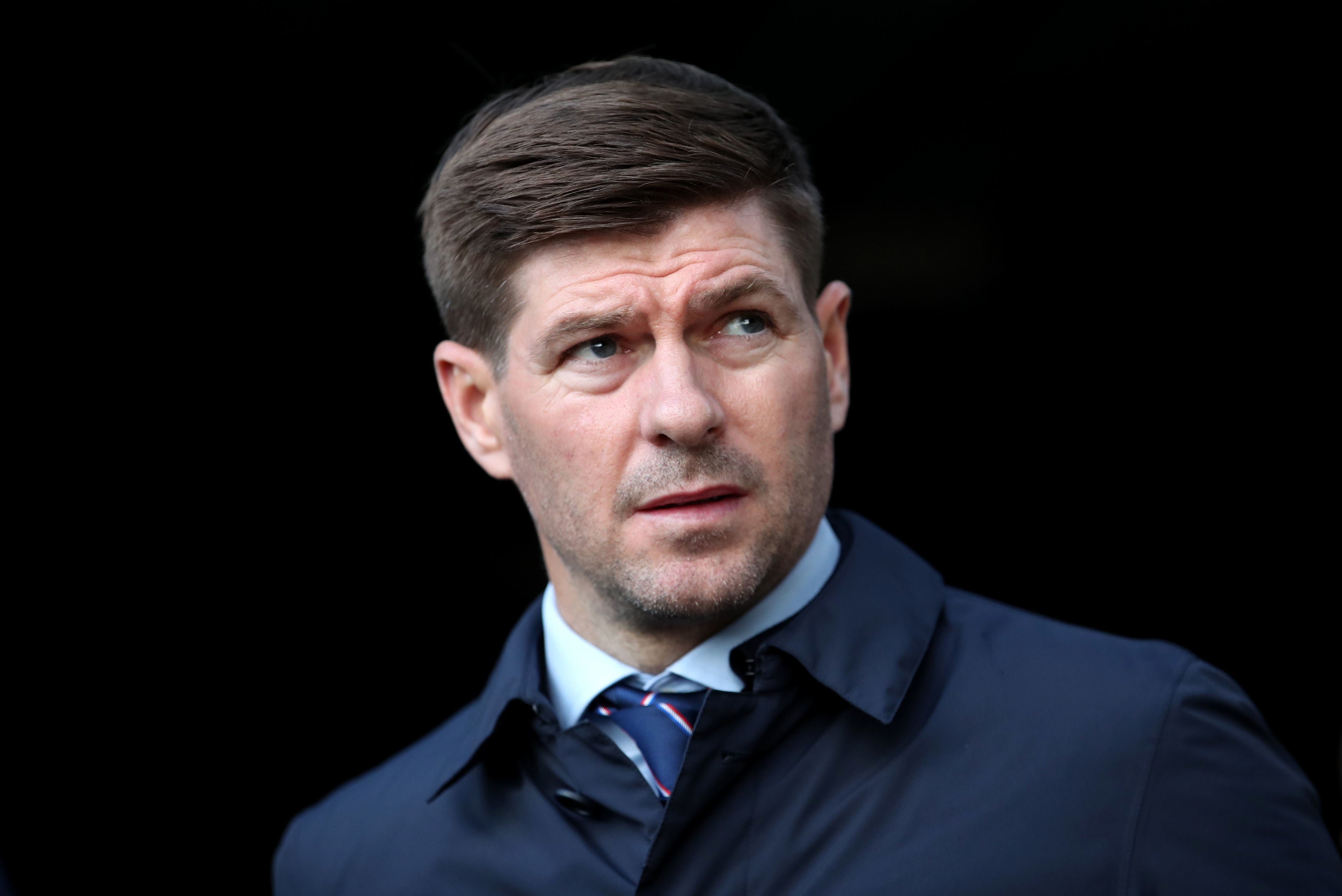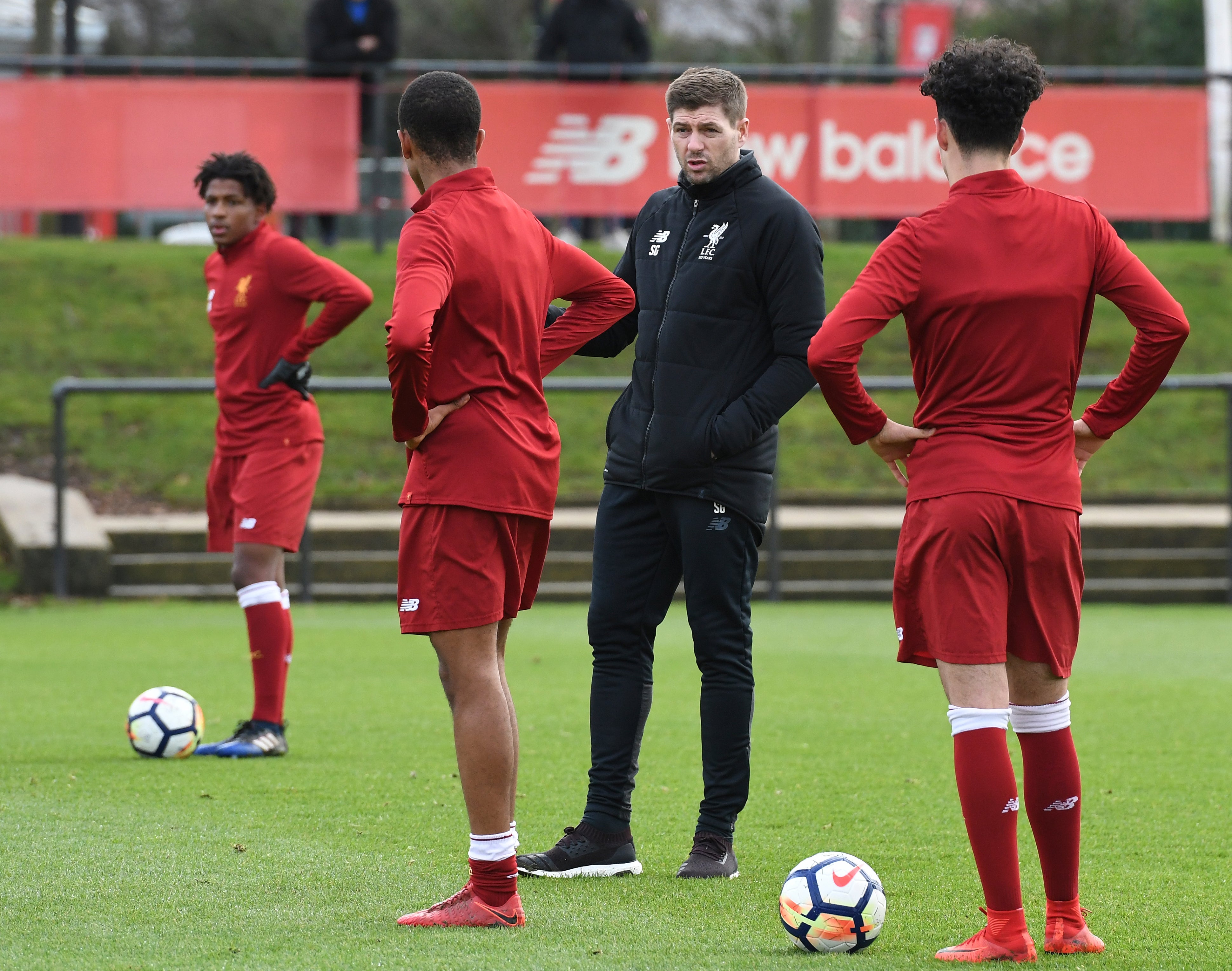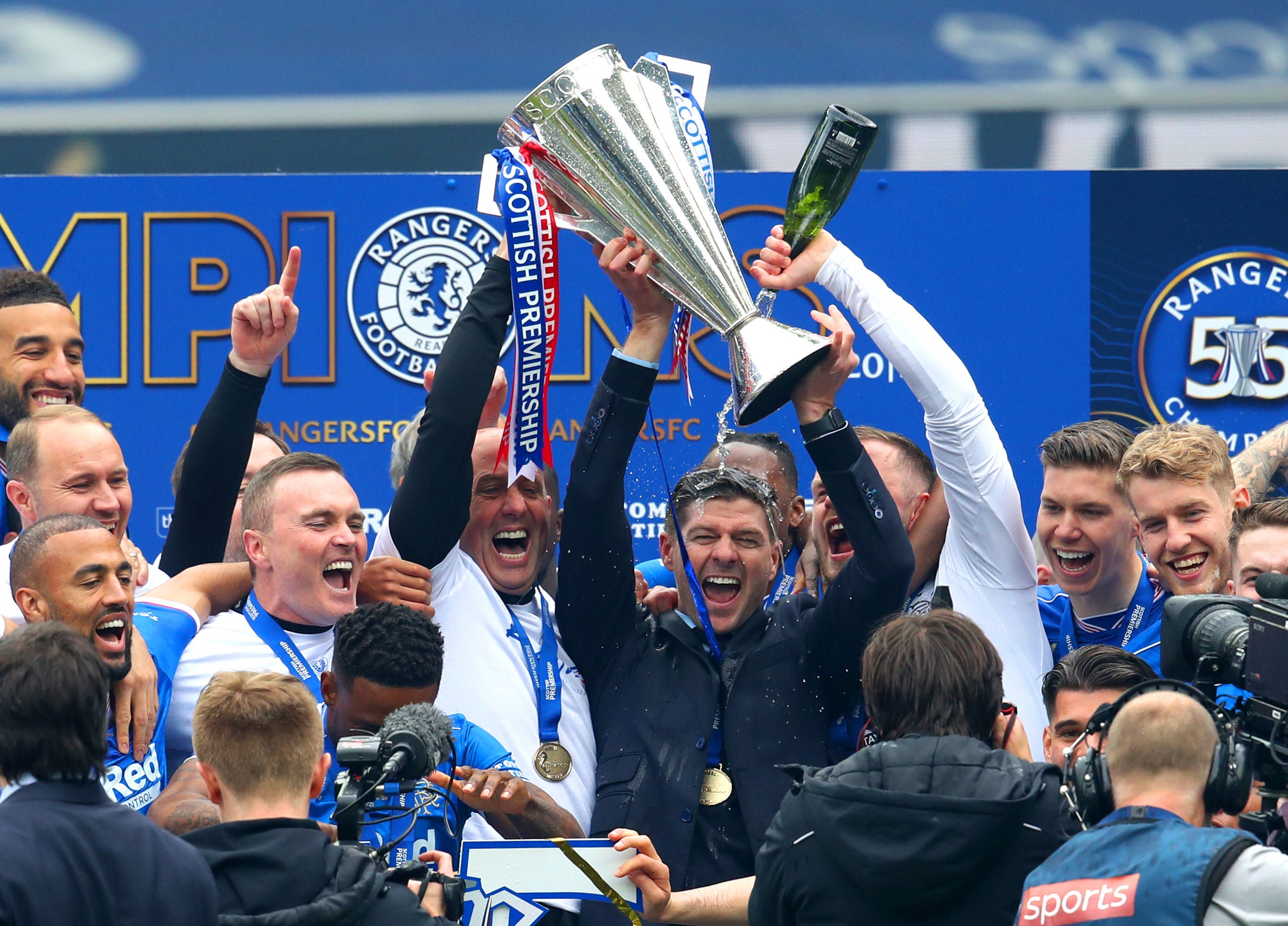Steven Gerrard the manager is ready for the step that has been a long time coming
The new Aston Villa head coach has been determined to carve a path in management divorced from his playing career and he has succeeded, writes Melissa Reddy


Your support helps us to tell the story
From reproductive rights to climate change to Big Tech, The Independent is on the ground when the story is developing. Whether it's investigating the financials of Elon Musk's pro-Trump PAC or producing our latest documentary, 'The A Word', which shines a light on the American women fighting for reproductive rights, we know how important it is to parse out the facts from the messaging.
At such a critical moment in US history, we need reporters on the ground. Your donation allows us to keep sending journalists to speak to both sides of the story.
The Independent is trusted by Americans across the entire political spectrum. And unlike many other quality news outlets, we choose not to lock Americans out of our reporting and analysis with paywalls. We believe quality journalism should be available to everyone, paid for by those who can afford it.
Your support makes all the difference.“This is mad. They have no idea what I’m like as a manager. I know that because I have no idea what I’m like as a manager!”
It is early 2016 and Steven Gerrard has been mulling over his retirement, but an official announcement is long months in the distance.
Still, his phone won’t stop pinging with approaches for managerial opportunities. This doesn’t flatter but instead rather spooks him.
Gerrard is still working towards completing his Uefa A license and wants any job he lands in the dugout to revolve around merit rather than his achievements as a player.
It concerns him that there are club chairman who want him to shape a team on the strength of his name, rather than any coaching credentials.
Gerrard eschews the fast-tracked route into management, turning down MK Dons and swatting away any other offers - including with the Football Association - to join Liverpool’s academy in a floating role at the start of 2017.
By April, he is announced as the new manager of the club’s Under-18s, with Neil Critchley promoted to leading the U23s.
Jurgen Klopp had advised Gerrard that he should only spend a short period shadowing coaches because the true education would come when he has ownership of a team himself.
“He was right!,” Gerrard would say in December 2017. “I’ve aged about two years in six months! Jurgen said to me, ‘I only want you to shadow for a short period of time because you need to have a couple of years of making mistakes, of picking your own team, you need to decide tactics, you need to find your philosophy, a way of playing, you need to deal with individual problems, you need to praise individuals, you need to try to help individuals, you need to feel disappointment and setbacks and then after a couple of years, you’ll know if this gig is for you’.”

Fast forward and the man who smartly chose to crawl into management, who then ended Celtic’s monopoly on the Scottish title with Rangers, doing so while going unbeaten, is Aston Villa’s new head coach.
The gig is certainly for him. And not on account of Steven Gerrard the player, but Steven Gerrard the manager.
Anyone who concludes that Villa are offering him the keys to their £205m-net-spend castle because he is “high profile” rather than the fact he has already proven to be a good manager across key criteria hasn’t been paying attention.
They had to move so quickly because suitors for Gerrard have been in large supply. Newcastle United had wanted him and would have heavily pursued him if he showed any interest in fronting their new Saudi-funded era.
He still remains in their big picture for the long term. If Tottenham were unable to get Antonio Conte to stick and had to twist in a different direction, Gerrard was one of their leading options.
He is prime managerial real estate for multiple reasons, not least his reconstruction of Rangers into a force.
There is an overflow of respect for Gerrard getting into management the right way: doing his badges and making his mistakes while learning the trade in youth development.
This was a brave choice at a time when Frank Lampard, the contemporary he has most been compared with, walked straight into Derby and was then catapulted into the Chelsea hot seat.
There were several warnings that Gerrard could get left behind, but he was not interested in the prestige of a big job or playing into his standing in the game. The objective was to soak up information and quietly shape his career while priming for the next step.
Even during advanced talks with Liverpool over coaching at the academy, the former midfielder emphasised he wanted a meaningful role rather than a symbolic one.
And when ex-Rangers chairman Dave King proposed his first gig in a high-pressured environment, Gerrard only agreed after a series of around 15 meetings when he was sure that his managerial vision and the club’s blueprint married.
The Scottish side swerved experienced Premier League candidates and a former England manager to put their trust in him, which King and former sporting director Mark Allen insisted wasn’t a gamble due to Gerrard’s clarity of philosophy, how he communicated it and “magnetic leadership” that couldn’t be matched by the others.
He delivered a title and regular European football, those golden touches underpinned by a concrete identity and a belief that had long evaporated from Rangers.

The attacking, possession-based style of football, protected by a rapid press and solid defensive structure, extracted the best out of his squad and imbued them with confidence in their abilities.
Gerrard’s preferred formation has been 4-3-3, although he has also used a 4-2-3-1. He built a team that is pragmatic, versatile and streetwise: they are comfortable constructing play from the back or going long, they can outplay opponents and outfight them, they are dangerous from set-pieces but can also slice through you.
Gerrard intelligently rounded up an inner circle that minimises his blind spots and maximises his football ideals. Michael Beale is an experienced tactical brain and excellent on the training pitches, Tom Culshaw is adept at helping teams locate the edges, especially from deadball situations, and Gary McAllister is both a sounding board and the man tasked with adding variety to the team’s passing game.
Away from the on-pitch mechanisms, Gerrard has shown incredible authority and empathy in situations that no coaching manual can guide you through. As a youth coach, he went to bat for Rhian Brewster who suffered racial abuse against Spartak Moscow in 2017 and provided after care that the forward still references his gratitude for.
Gerrard was then fierce in his criticism of Slavia Prague, Sparta Prague and the lack of meaty punishments from Uefa after Glen Kamara endured disgusting discrimination on account of his skin colour.
His expert handling of the media has also been noted by recruitment departments, in particular the way he palmed off questions about taking over from Klopp through Liverpool’s turbulent spell last season, and links to Newcastle while Steve Bruce was still in situ recently, by respectfully talking up both managers.
Gerrard has spent four years developing and fully forming his identity in the dugout. There is a crystalline philosophy in play and a streamlined methodology in carrying it out.
The pressures at Villa, the expectations and the external noise will all be greater. He is ready for it and will relish it.
Steven Gerrard knows exactly what he’s like as a manager and we’re all about to properly find out.
Join our commenting forum
Join thought-provoking conversations, follow other Independent readers and see their replies
Comments